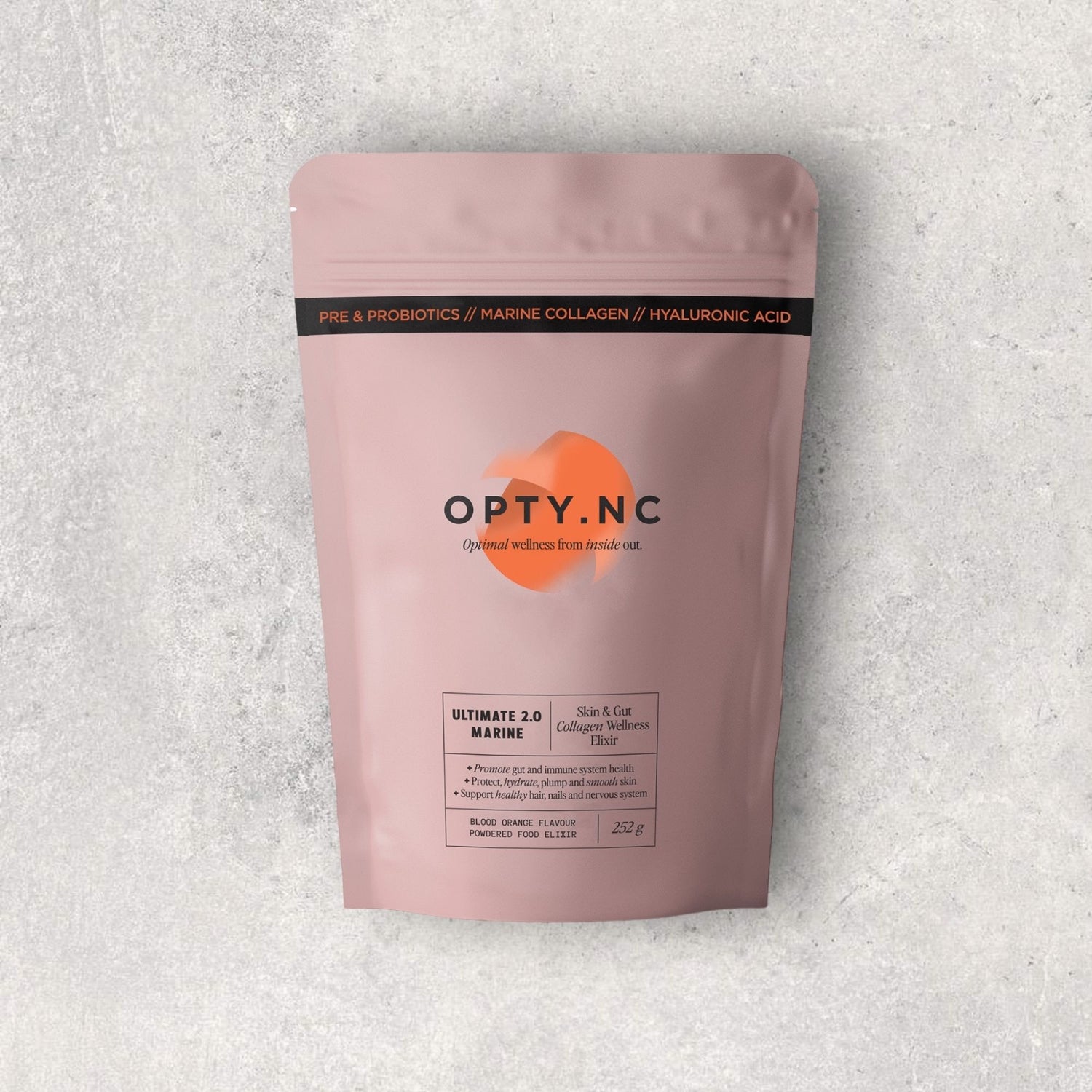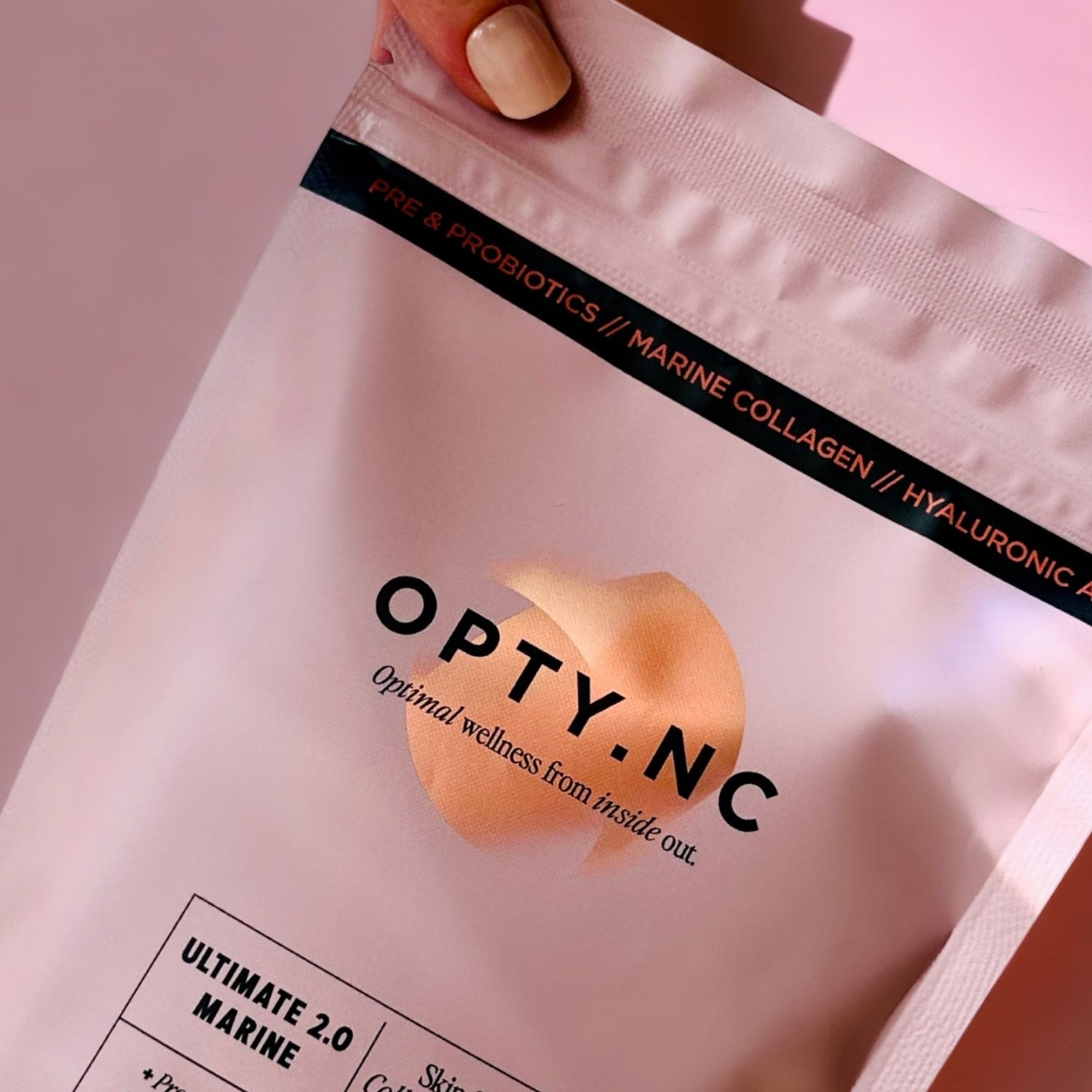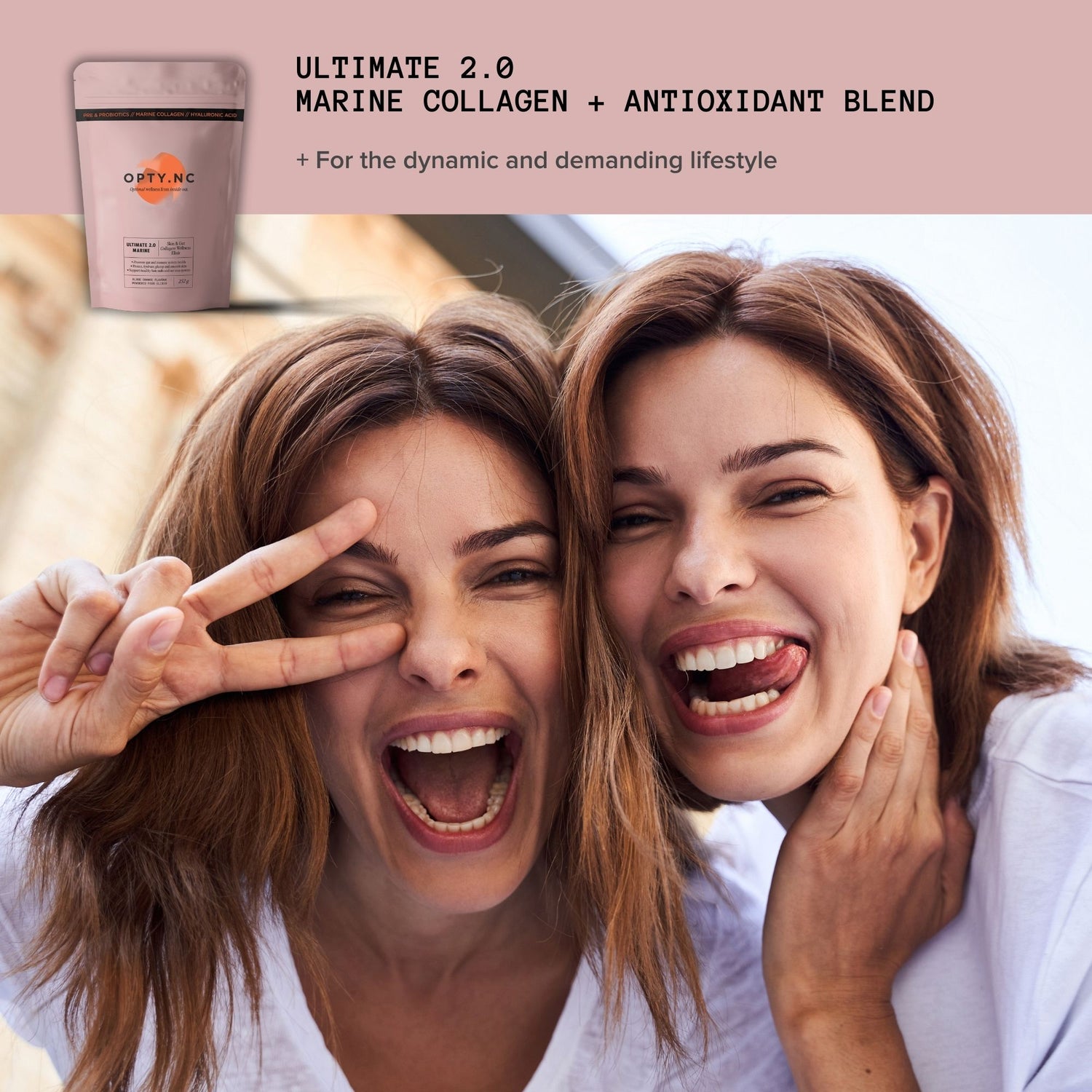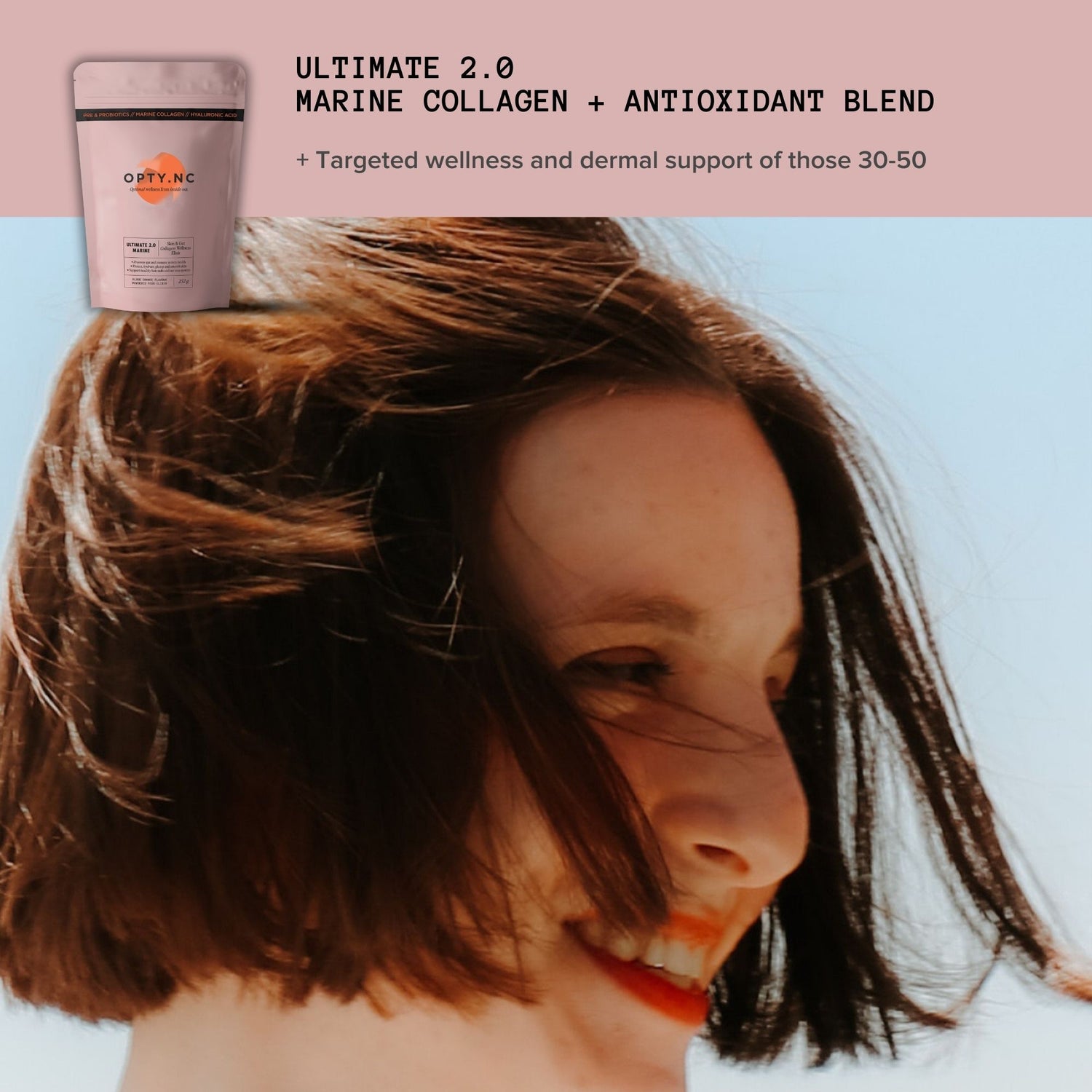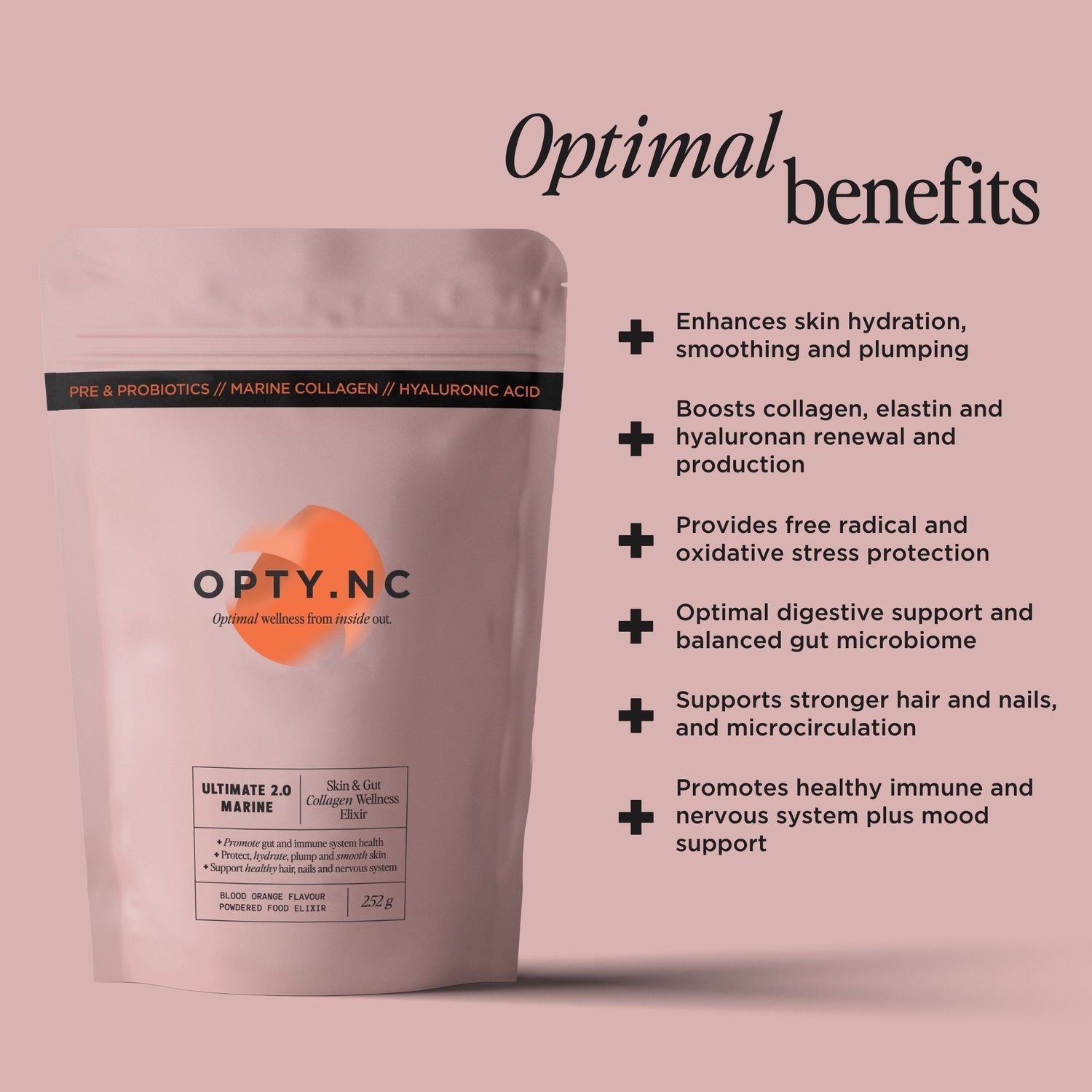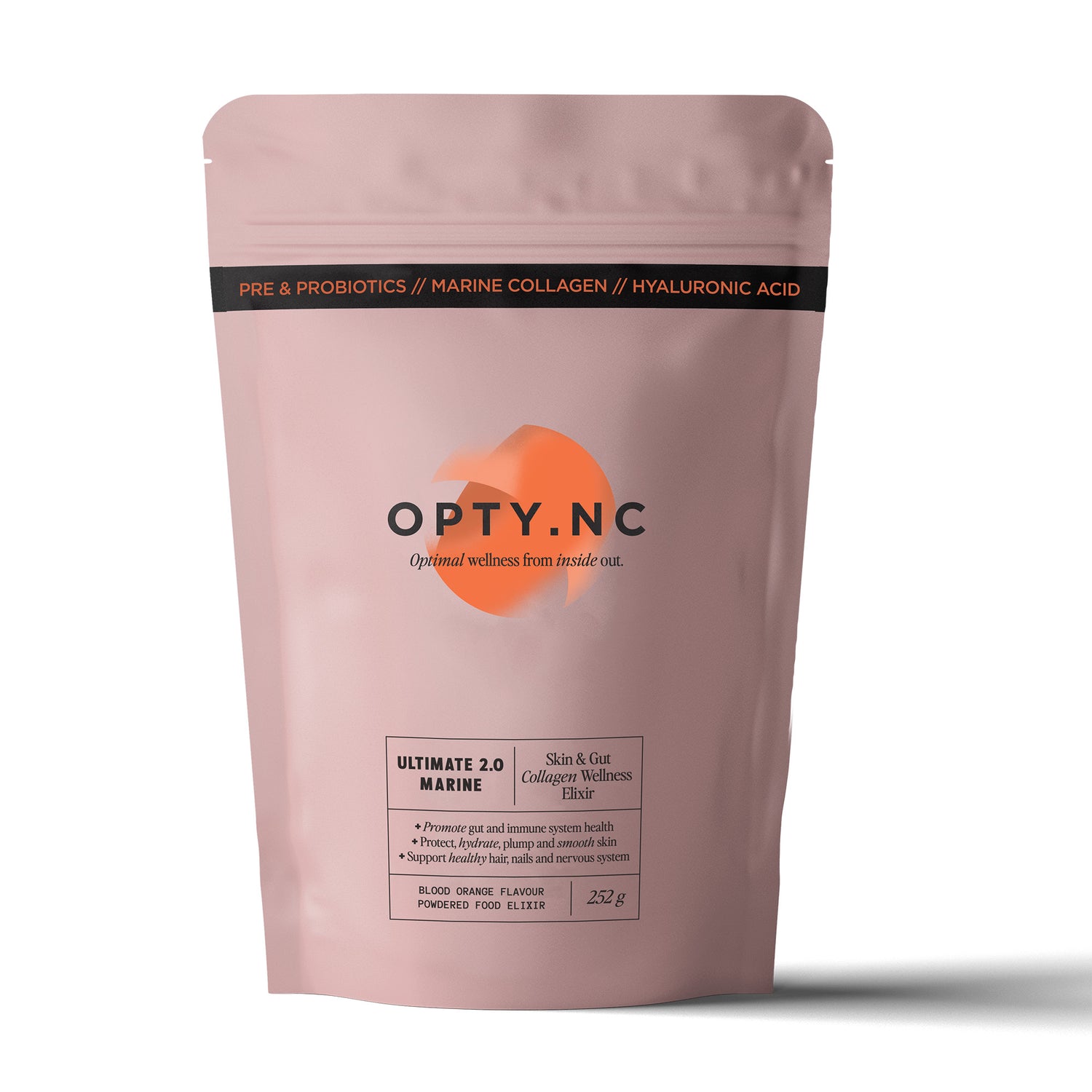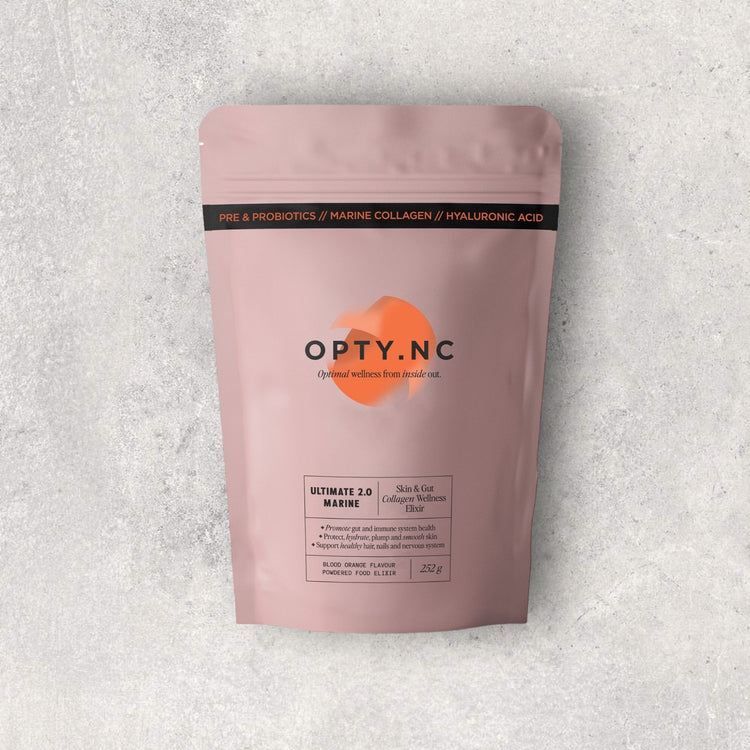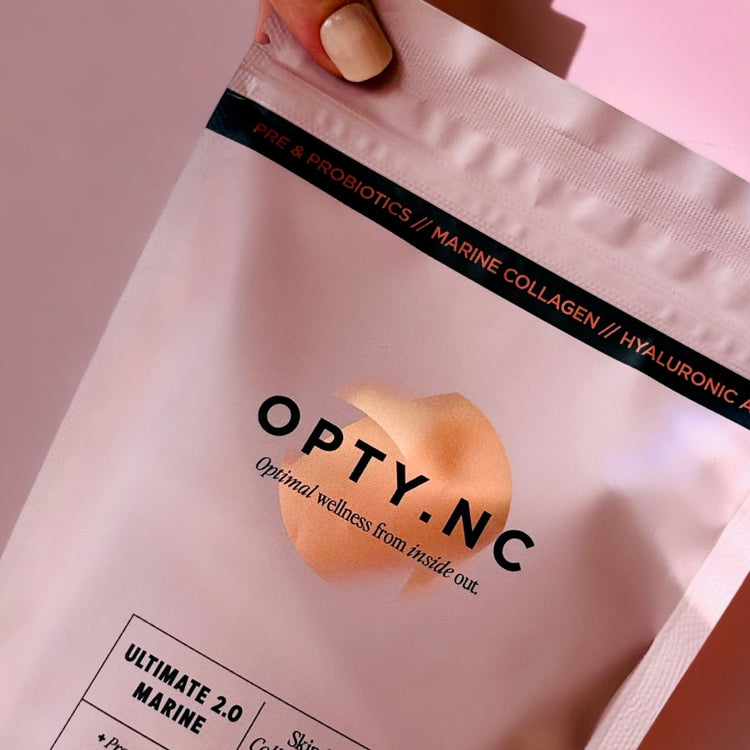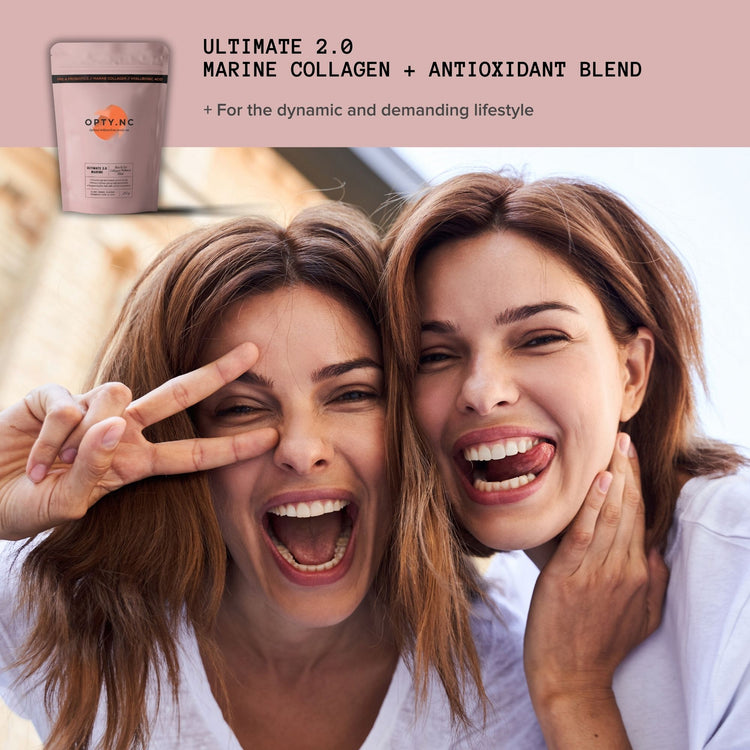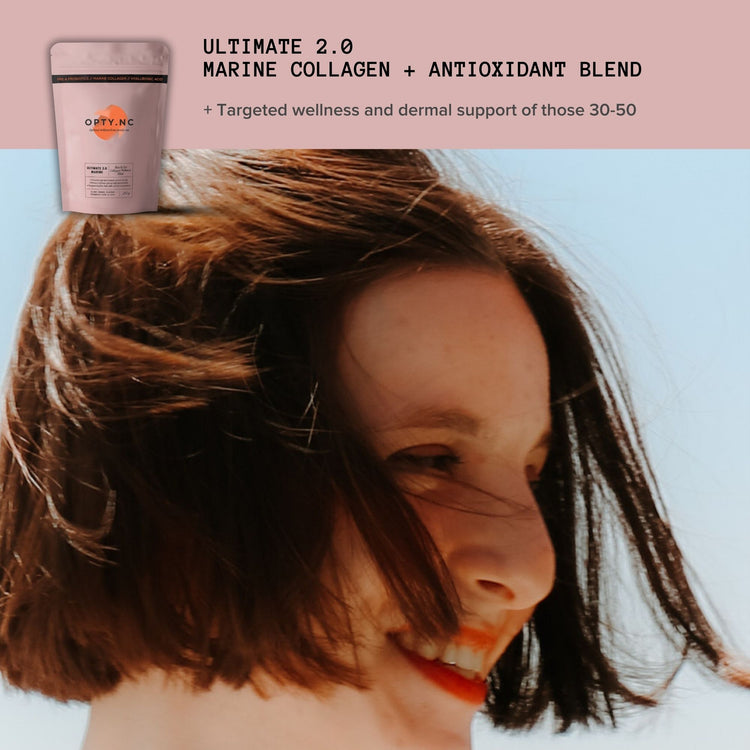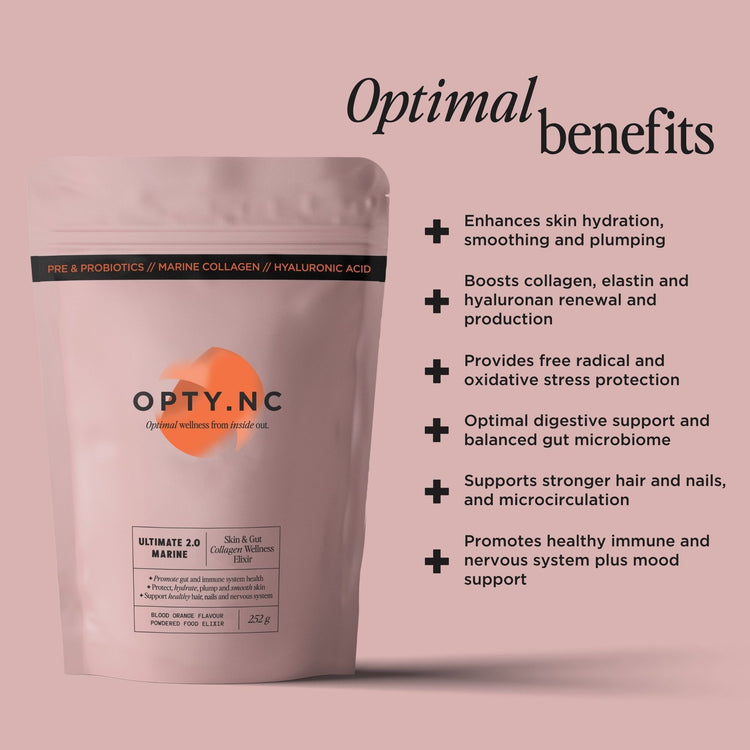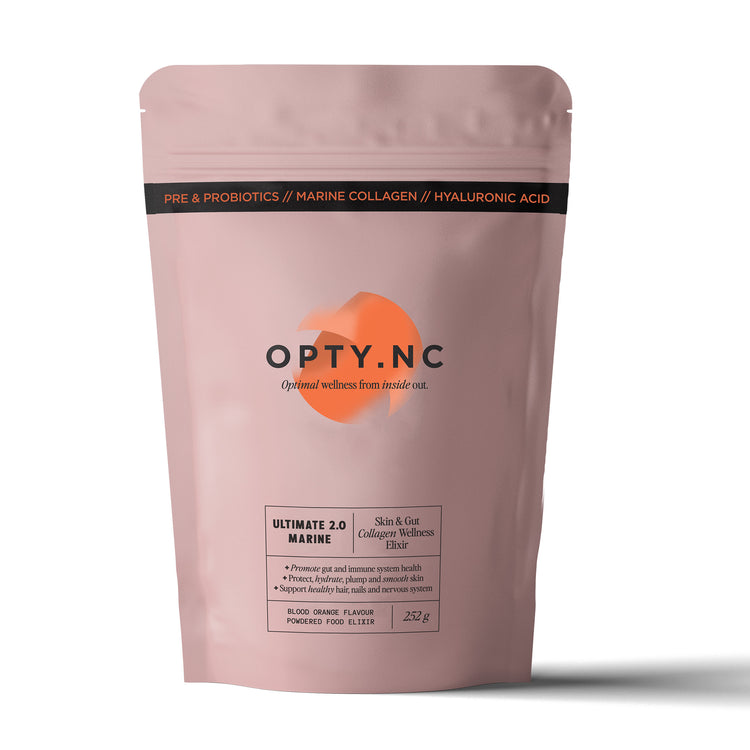Did you know that your skin is a reflection of your internal health? What’s going on inside is reflected on the outside. As our body's largest organ, it's interconnected with every system in our body. In particular, the skin has a strong bond with our gut.
While we cannot see what’s actually going on inside our gut, we can certainly see the signs of poor gut health on the outside in conditions such as dull hair, weak nails and skin issues. Poor gut health is also linked to many chronic skin diseases like eczema and psoriasis, and may even lead to premature aging.
Enter the gut-skin connection
Our gut and microbiome (made up of the 100 trillion organisms on our skin and gut) are responsible for absorbing nutrients, maintaining a healthy immune system, and excreting waste. When any of these functions are disturbed, it affects our skin's health.

© 2019 Anagenix Ltd. All rights reserved.
The gut and skin constantly communicate with each other in a relationship known as the gut-skin axis. Messages are sent between our gut, our microbiome, and our skin via the immune system, the nervous system and the endocrine system to help keep our body working in harmony (a state otherwise known as ‘homeostasis’).
When our microbiome thrives, it supports the healthy functions of the rest of our body. It provides nutrition, regulates our immune system, excretes toxins, and signals to the rest of our body to maintain homeostasis or balance. But when it's out of balance, it can lead to a state of 'dysbiosis', with overgrowth of yeasts and 'bad' bacteria.
This dysbiosis can cause inflammation, oxidative stress, poor nutrient absorption and —eventually— leaky gut. This impacts your skin and can cause conditions such as eczema, psoriasis, dull hair, weak nails, and premature aging.
So, what causes poor gut health?

© 2019 Anagenix Ltd. All rights reserved.
The microbiome and gut health
The microbiome is comprised of many species of microorganisms – mainly bacteria with some ‘good’ and some ‘bad’. In an ideal world, our microbiome lives together in harmony and balance to support our overall health and wellbeing.
Some of the key bacteria in our microbiome are responsible for breaking down complex carbohydrates into short chain fatty acids (SCFAs), which are important for maintaining a healthy intestinal environment. For example, an SCFA called butyrate is the preferred fuel for the cells lining the gut, helping to support the growth of healthy cells in the colon and provide protection against colon cancer. Butyrate also reduces inflammation and oxidative stress in the colon, and reduces absorption of toxins.

© 2019 Anagenix Ltd. All rights reserved.
However, factors such as a poor diet, lack of sleep, chronic stress, drugs, alcohol and certain medications can throw out the delicate balance of the microbiome. This leads to a state of ‘dysbiosis’, resulting in an overgrowth of yeasts and ‘bad’ bacteria. These bad guys wreak havoc on our gut health, causing inflammation, oxidative stress, poor nutrient absorption and, eventually, leaky gut.
What is leaky gut?
The cells lining the gut wall are very selective about what they allow to pass through into our circulation. These cells stop potentially harmful things like pathogens and food allergens and allow through useful things like nutrients and medications.
In a healthy gut, these cells meet at points called ‘tight junctions’. As the name suggests, these junctions create an impermeable barrier. All particles that enter our body via the gut must be checked and approved by these very selective gut cells before they can pass through – kind of like your gut’s very own tiny security guards.
Inflammation of the gut wall brought on by dysbiosis, weakens these ‘tight junctions’. This means large undigested particles or pathogens are now able to pass, or literally ‘leak’, through the gut wall, into our blood stream. At the same time, normal absorption of nutrients is disrupted, slowed or halted.

© 2020 Optima Nutricosmetics Pty Ltd. All rights reserved.
Systemic effects of leaky gut
Unfortunately, the effects of leaky gut do not stop there.
When certain particles ‘leak’ through the gut wall and make their way into our blood circulation, our immune system recognises them as foreign and responds by mounting a defence. The effect of this can be wide ranging, including anything from mild digestive upsets to serious food intolerances and chronic inflammatory conditions.
Microbiome imbalances have also been linked to a range of systemic conditions such as chronic fatigue, auto-immune diseases, obesity and some mental health conditions.
How does poor gut health affect our skin?

Skin aging
Aging is a natural process that will inevitably affect us all. However, there are many factors that can impact the rate at which we age – some we can control, others we cannot. Things like chronic sun exposure, emotional stress, poor sleep and smoking are some of the more obvious factors that can increase our rate of aging. But, one lesser known factor is poor gut health.
The one thing all of these factors have in common is their ability to produce free radicals and chronic oxidative stress, which ultimately leads to destruction of collagen, reduced delivery of blood circulation (and therefore nutrients) to the skin, and a weakened skin immune system.
What follows is uneven skin tone, sagging skin, poor skin texture, appearance of fine lines and wrinkles, loss of skin elasticity, and skin dehydration.
Acne, blemishes and breakouts
Researchers have long suspected a connection between the gut and skin health. A study dated back to 1916 was the first of many to suggest acne sufferers may have greater levels of intestinal permeability – otherwise known as leaky gut.
So, what’s the link? In one study, a group of healthy females experienced a reduction in whiteheads and blackheads after supplementation with the probiotic Bacillus coagulans. The improvement in skin appearance was linked to increased stool frequency and resulting reduction in circulating phenols (a by-product of protein digestion that can exert undesirable effects in the body).
Skin sensitivity and inflammatory skin conditions
With leaky gut, our immune system is basically always ‘on’, constantly faced with the threat of foreign particles leaking from the gut into our blood stream. This leads to a chronic state of stress and inflammation that is reflected throughout our body – and, of course, on our skin.
Research has shown that people with rosacea have a much higher incidence of small intestinal bacterial overgrowth (SIBO), and treatment of the SIBO can result in an almost complete clearing of rosacea symptoms. Additionally, several skin conditions are associated with inflammatory bowel disease (IBD) – in fact, 16.9% of people with IBD also have psoriasis, as compared with estimates of between 2.2% - 8% in the general population.
How to maintain a happy, healthy gut for radiant skin
A healthy balanced diet
So, we know that in order for our gut and skin to function optimally, they both require proper nutrition. A diet rich in plant-based foods that contain vitamins, minerals, essential fatty acids, phytonutrients (e.g. plant-based antioxidants) and protein will provide exactly that.
But, we also need to feed the good bacteria in our microbiome to ensure it remains in balance. This is where prebiotics come in.
Prebiotics are a group of compounds (including complex carbohydrates that can breakdown to SCFAs in the gut) that are the preferred food source for good bacteria in our colon.
One example of a great prebiotic is kiwi fruit. Daily consumption of powdered kiwi fruit extract has been shown to increase populations of a bacteria called F. Prau, which comprises up to 15% of a healthy gut microbiome. F. Prau also produces butyrate – the important SCFA we discussed earlier.
What about probiotics?
Probiotics exert myriad benefits on the gut function and immune system. They can compete with pathogenic organisms, improve gut barrier function and reduce gut inflammation. Probiotics can also provide positive benefits on the skin by enhancing nutrient absorption, supporting the immune system and modulating the gut-skin axis.
There is also a significant and growing body of evidence demonstrating the positive impact of oral supplementation of probiotics to treat various skin conditions such as eczema, psoriasis and atopic dermatitis. Some may also improve wound healing and offer photoprotection to the skin after UV exposure.
Great skin starts in the gut
Healthy, vibrant skin needs a healthy, balanced gut. One simply cannot exist without the other. While the gut-skin connection is extremely complex, we do have the power to help our body maintain its delicate balance. By nourishing and nurturing our gut and microbiome with good nutrition, prebiotics and probiotics, we can ensure we are giving our skin the best chance to receive all the essential nutrients it needs to thrive.
Shop our Ultimate Elixirs. Your foundation for complete gut health and vibrant, radiant skin.





